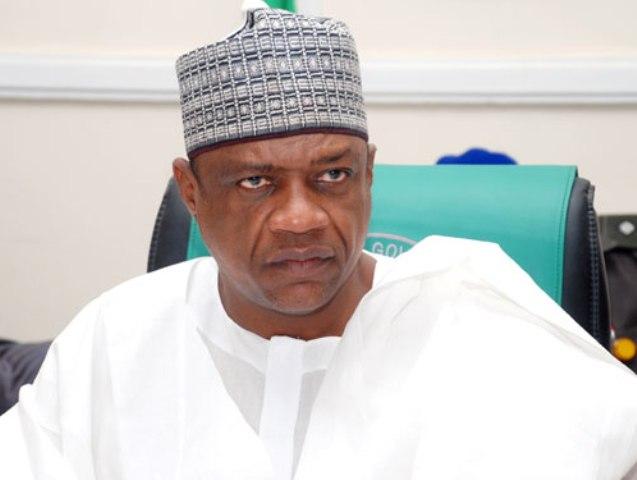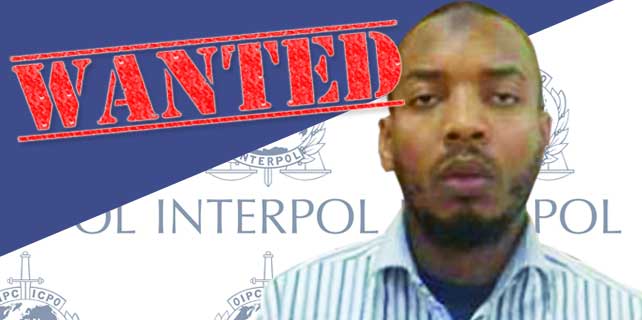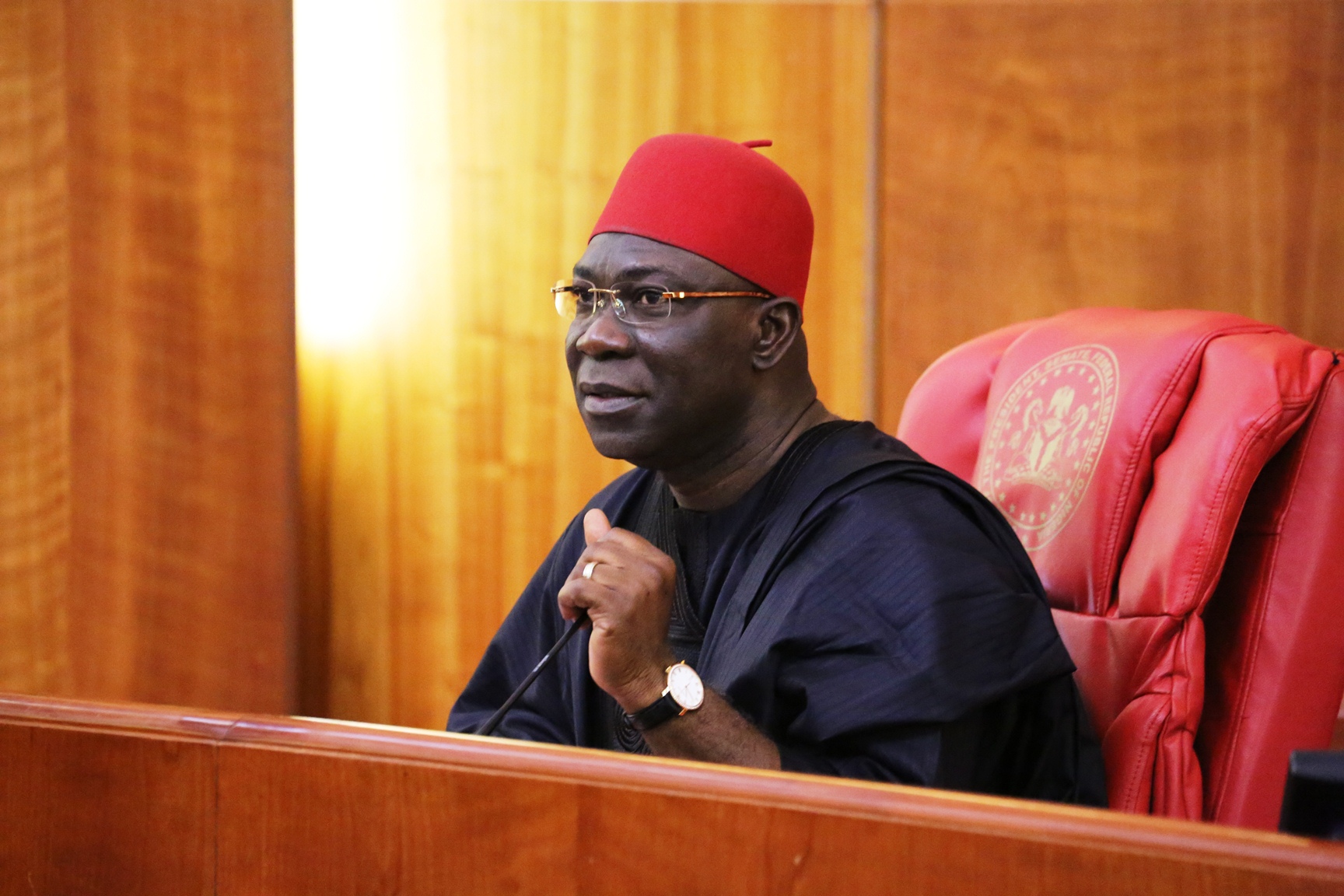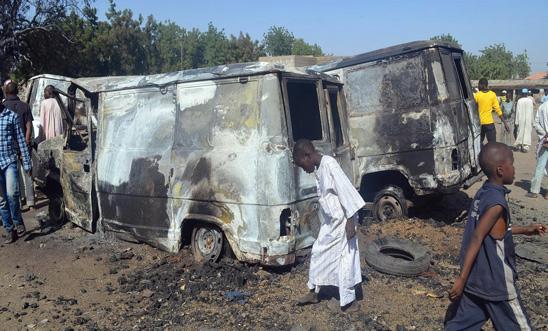Governor Ibrahim Gaidam of Yobe State has asked the national assembly not to extend the state of emergency in the state as requested by President Goodluck Jonathan.
In rejecting the move, the government of Yobe State said it takes serious exception to the request, maintaining that “extending emergency rule is not the answer to the prevailing security challenges in the three affected states in view of the apparent failure of the same measure over the last 12 months”.
In May 2013, an emergency was declared by Jonathan in Yobe, Borno and Adamawa States as part of measures to check the Boko Haram insurgency.
The initial six-month period was extended by another six months in November 2013 and the president has now requested for another six months.
Advertisement
In spite of the emergency rule, which allows certain sections of the constitution to be suspended to maintain the peace, the insurgents have carried out deadly attacks, forcing many Nigerians to question the effectiveness of the measure.
President Jonathan said during his last media chat that the success of the emergency rule should not be judged on successful attacks but the ones that were prevented by the military.
Here is the full text of the press statement signed by the Special Adviser on Press Affairs and Information, Alhaji Abdullahi Bego.
Advertisement
It has come to the notice of His Excellency Governor Ibrahim Gaidam that the President and Commander-in-Chief of the Armed Forces Dr Goodluck Ebele Jonathan has written to the National Assembly asking for yet another extension of Emergency Rule in Borno, Yobe and Adamawa states as the current emergency rule expires in the next few days.
The Yobe State Government, under the leadership of His Excellency Governor Ibrahim Gaidam, takes very strong exception to this move by the President. We believe that extending emergency rule is not the answer to the prevailing security challenges in the three affected states in view of the apparent failure of the same measure over the last 12 months.
As some may recall, Governor Gaidam had supported the first emergency declaration made by the President back in May 2013. He did so because he believed a more heightened effort was needed to deal with the escalating security challenges at the time. Six months on, emergency rule was a mixed-bag that was markedmoreby failure than by success. So, when the President went back to the National Assembly in November 2013 to ask for an extension, Governor Gaidam was among many leaders across the country who expressed reservations and asked for a change of strategy.
For instance, over the six months of emergency rule and later over the second, we have seen some of the worst attacks by Boko Haram in Yobe State. From GSS Damaturu to GSS Mamudo to College of Agriculture Gujba and FGC Buni Yadi, more than 120 students were killed by insurgents. There were many other attacks in Gujba and Damaturu local governments. Although the security forces on the ground have done and continue to do their best under the circumstances, insurgents and criminals have always carried out attacks when they wanted to and have almost always got away with their barbarous and despicable acts.
Advertisement
As the President now asks for another extension, it is time to ask whether any lessons have been learnt over the previous 12 months and whether the very patriotic suggestions made by the Yobe state government, other affected state governments and Nigerians generally, have been taken into account in the ongoing effort to deal with Boko Haram insurgency.
First, Governor Gaidam has suggested, as did his Borno and Adamawa states counterparts, that the military and security forces on the ground need to be fully and properly kitted with superior weaponry and advanced communications equipment. The governor has particularly stressed the need for more technology-driven intelligence gathering and surveillance procedures to be able to detect and prevent attacks.
Second, the Governor has stressed the need to carry the people of the affected states on board in the fight against insurgency. This suggestion was borne out of the fact that the very doctrine of counter-insurgency, as propounded by US military generals in Afghanistan and Iraq, was conceived as a means of winning the support of local, affected populations as much as scoring a military victory against insurgents.
We have seen over this period, however, that the federal government has neither provided the advanced weaponry and communications gear needed to defeat Boko Haram nor worked to build and sustain the confidence of the people in the affected states.
Advertisement
From Izge to Konduga and from Buni-Yadi to Chibok, thousands of people have been affected in the most gruesome manner but the President has not even found it worthy to pay a sympathy visit.
We also note that the problem of insecurity is now more of a national problem than an issue restricted to Yobe, Borno and Adamawa states alone. There are security challenges in Plateau, Nasarawa, Benue, Taraba and Kaduna states and even the Federal Capital Territory. Yet, in all these places, the military and other security forces have continued to do their work of trying to restore order without an ‘Emergency Rule’ being declared by the President.
Advertisement
It is therefore our considered opinion that a new approach is needed by the federal government to defeat Boko Haram, restore peace and stability, and rebuild the livelihoods that have been lost.
This approach should look at the prevailing challenges in the three affected states as a security challenge rather than a political one and should build on the suggestions already made by the governments and people of these states.
Advertisement
It is our considered opinion that the military and other security forces can remain on the ground in the affected states and do their work until Boko Haram is defeated or made to surrender. In fact, we request that more boots should be deployed to accelerate the pace of effort against Boko Haram. We believe, however, that this can be done without the imposition of a state of emergency.
We also believe that the federal government needs to evaluate its military strategy regularly, provide additional and superior weaponry to the security forces and use the endowments of advanced communications and satellite technology to be several steps ahead of the insurgents.
Advertisement
These, along with confidence-building measures that see and regard the hapless and distraught people of the affected states as partners in the search for peace, will ultimately be the elixir from the security challenges we face.
The issue therefore is not another extension of emergency rule. The issue is whether the federal government can summon the courage to try these suggestions and to explore new ways to bring the insurgency to an end without repeating a stale and sterile measure which has failed over the last 12 months.
1 comments






Their people are dying in their thousands on a daily basis and they are preoccupied with the politics of 2015, after failing to lift their peoples while in office fir over 49 years. Well as you make your bed, so will you lie on it. Let the mayhem continue until the peoples if the affected states take their lives into their own hands as per the Sunni Awakening in Iraq which saw the end of Al Qaeda until the Americans left.
Some people think they can embarrass others by killing their own kit and kin. Perhaps we should allow them.